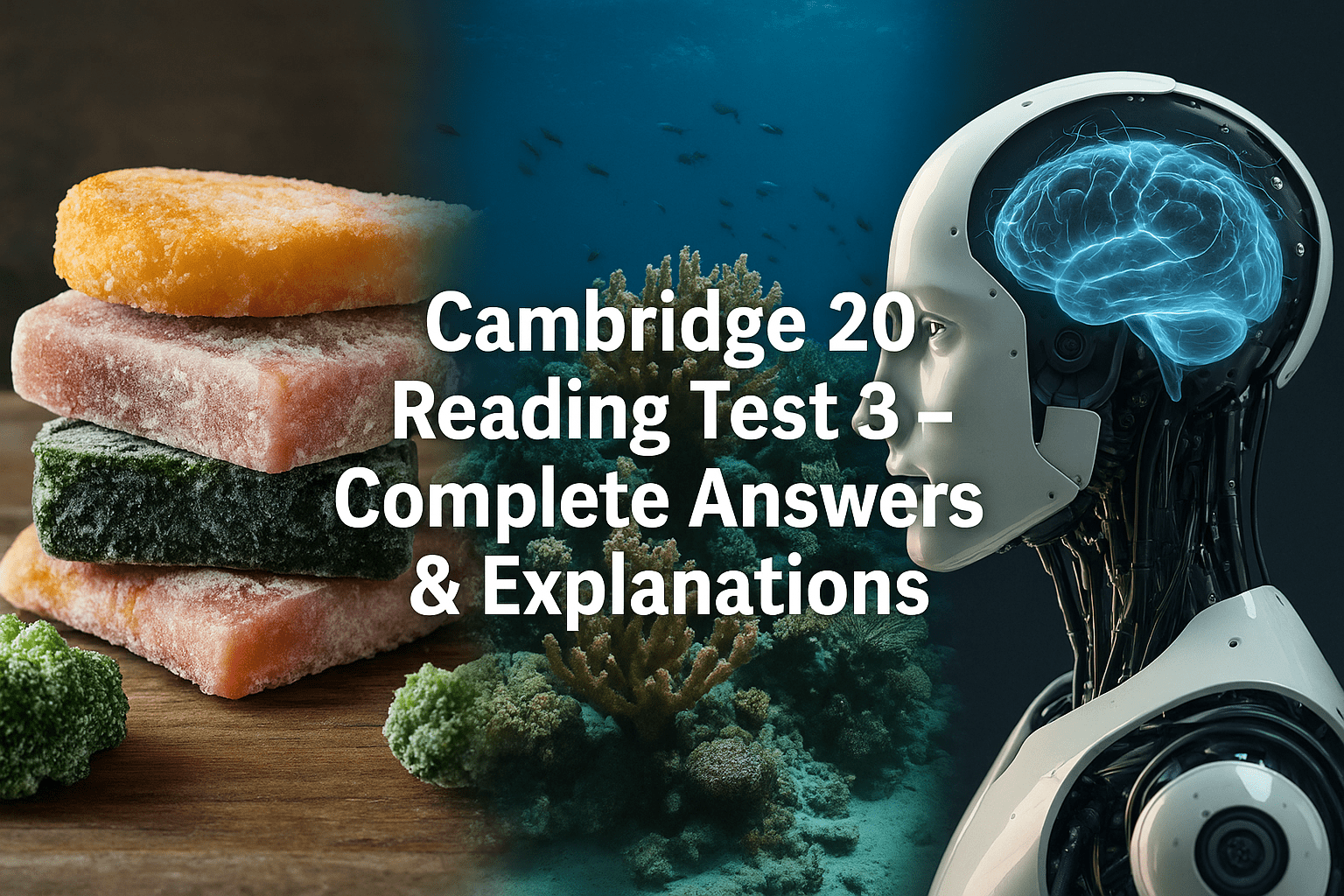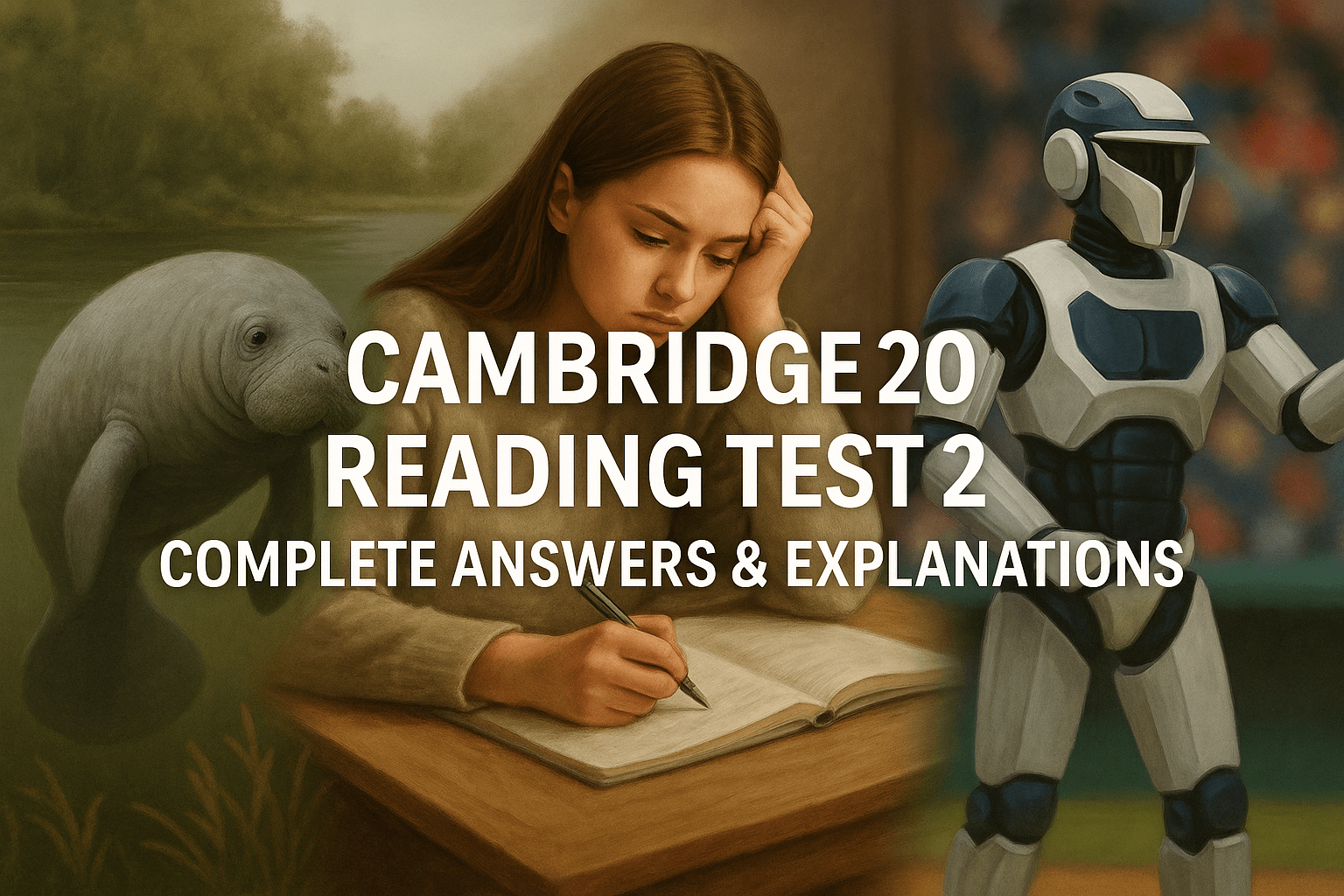- 🌟 Why Complex IELTS Reading Passages Feel Challenging
- 🔹 Step-by-Step Strategy for Handling Complex Passages
- 📖 Example of Efficient Handling of a Complex Passage
- 🏋️♂️ Practice Tips for Complex IELTS Reading Passages
- ❌ Common Mistakes to Avoid
- ✅ Quick Checklist for Handling Complex Passages
- ❓ FAQ: Complex IELTS Reading Passages
- 🏆 Conclusion
One of the most intimidating challenges for IELTS candidates is long and complex IELTS Reading passages. Many students panic when they see a dense page full of academic vocabulary and long sentences. But here’s the truth: you don’t need to read every single word to achieve Band 7–9. Instead, you need strategies to handle these passages efficiently without getting lost in details.
As a global IELTS trainer, I’ve taught thousands of students how to stay calm, focused, and strategic when facing these tough sections. In this blog, I’ll share the step-by-step approach I teach to manage complex passages with confidence.
🌟 Why Complex IELTS Reading Passages Feel Challenging
Long and complex passages often include:
- Academic topics with unfamiliar terminology
- Dense paragraphs full of facts, examples, or research studies
- Multiple clauses and long sentences that make comprehension slower
The test is designed to measure your strategy as much as your English ability. If you try to read every word carefully, you will run out of time.
By learning to manage complex IELTS Reading passages, you can:
- Avoid getting lost in unnecessary details
- Locate answers quickly and accurately
- Maintain focus throughout all three passages
For an overview of essential reading strategies, see our IELTS Reading Skills for Band 7–9.
🔹 Step-by-Step Strategy for Handling Complex Passages
Here’s the method I teach my students to approach even the toughest passages efficiently.
1. Skim First to Understand the Structure
- Spend 2–3 minutes skimming the passage
- Focus on titles, headings, first and last sentences of paragraphs
- Identify main ideas instead of reading line by line
Example: If the passage is about “Climate Change and Coral Reefs,” note which paragraph covers causes, effects, and solutions.
2. Break the Passage into Manageable Chunks
- Mentally divide long paragraphs into 2–3 sections
- Read each chunk for its main point rather than every detail
- Ignore examples or complex data unless the question requires them
🎯 Pro Tip: Treat the passage like a map—you only need the main routes, not every street.
3. Identify Keywords in Questions Before Reading in Detail
- Underline names, dates, numbers, and unique terms
- Predict synonyms or paraphrases that may appear in the passage
- This guides your eyes to the relevant section faster
4. Scan for Answers in the Relevant Section
- Move your eyes quickly across the text (scanning)
- Stop when you see keywords or synonyms
- Verify meaning with the surrounding sentence
5. Skip Hard Words and Focus on Meaning
- Don’t panic if you see academic or technical terms
- Use context clues to understand the sentence
- Only return to tough words if they are crucial for the answer
📖 Example of Efficient Handling of a Complex Passage
Scenario: You’re reading a passage about “The Evolution of Space Exploration” with 8 long paragraphs.
Step 1: Skim the passage and note:
- Para 1: History of early space missions
- Para 2–3: Cold War space race
- Para 4–6: Modern satellite technology
- Para 7–8: Future exploration projects
Step 2: Check questions and identify keywords:
- “Which year was the first satellite launched?” → Look for numbers
- “What is a benefit of satellite communication?” → Look for advantages
Step 3: Scan the relevant paragraphs only instead of reading all eight in detail.
This method keeps you efficient and prevents overwhelm.
🏋️♂️ Practice Tips for Complex IELTS Reading Passages
- Daily Skimming & Scanning Drills
Practice with long news or academic articles to improve speed. - Timed Mock Tests
Simulate real exam conditions and track your time per passage. - Highlight Key Ideas Only
Avoid marking everything. Focus on keywords and main points. - Learn to Ignore Extra Details
Many sentences are just examples or background—don’t get trapped. - Combine Strategies
Use skimming, scanning, keyword spotting, and paraphrasing together for maximum efficiency.
For extra practice and resources, visit IDP IELTS.
❌ Common Mistakes to Avoid
- Reading every word slowly – You’ll run out of time
- Losing focus in long paragraphs – Break them into smaller mental sections
- Ignoring keywords – Makes scanning inefficient
- Spending too long on hard questions – Skip and return later
✅ Quick Checklist for Handling Complex Passages
Before your next IELTS Reading test, ask yourself:
- Can I skim a long passage in 2–3 minutes?
- Do I identify keywords and their synonyms before scanning?
- Can I ignore minor details and focus on main ideas?
- Do I combine all strategies to stay efficient?
If yes, you are ready to handle any complex passage confidently.
❓ FAQ: Complex IELTS Reading Passages
Q1: Do I need to understand every word to answer correctly?
No, focus on main ideas and context clues.
Q2: Which passages are usually the hardest?
Typically Passage 3 in Academic Reading, as it’s longer and more abstract.
Q3: How can I avoid getting lost in long paragraphs?
Break them into smaller chunks and focus on topic sentences.
Q4: Should I read questions or the passage first?
Read the questions first, identify keywords, then skim the passage.
Q5: How much time should I spend on a long passage?
Aim for 20–25 minutes max, leaving time for checking answers.
🏆 Conclusion
Complex IELTS Reading passages are less scary when you have the right plan. By skimming first, breaking the passage into chunks, identifying keywords, and scanning efficiently, you can save time and maintain comprehension.
Practice these strategies consistently, combine them with time management, paraphrasing, and context guessing, and you’ll move closer to Band 7–9 success.
Now, grab a long passage and test yourself—focus on the main ideas, and watch your speed and confidence grow!





